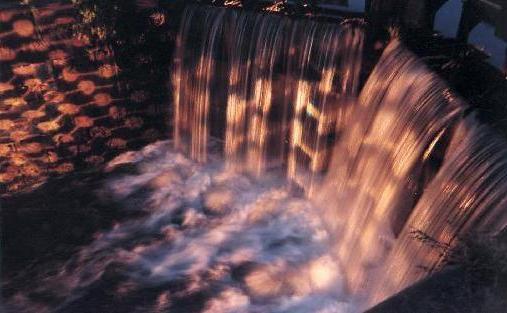Planning + Community



Photos: Guthrie Photography
Photos: Guthrie Photography
Water Above Water
Location
Forth and Clyde Canal, Glasgow, Scotland
Client
Glasgow 1999, British Waterways
Team
Leni Schwendinger Light Projects
“As part of Glasgow’s 1999 City of Architecture and Design initiative, the Maryhill Locks were the focus of a public art project. Coordinated by American lighting designer, Leni Schwendinger, Water Above Water temporarily transformed the locks and Kelvin Aqueduct into a magical, illuminated landscape. A sea of luminous blue, green and aquamarine floodlighting dissolved and animated the stern, hand-hewn stone of the aqueduct’s buttresses and arches.” Excerpt from “Delight”, Architectural Review, December 1999.
The year-long festival reiterated Glasgow's tradition of involving communities in the process of redefining their environment. Leni Schwendinger was commissioned by Independent Public Arts in Edinburgh. She aspired to "go where the people live", with an art installation of local Scottish significance that also resonated on an international scale. Water Above Water, a Sublime Floating Landscape was both a temporal art installation and a community-engaged “happening”.
Conceived and designed to draw both local and international audiences to the 1,000-foot configuration of landmarked locks and aqueducts in North Glasgow's Maryhill, Water Above Water 's mixage of art, engineering, and illuminations celebrated the Forth & Clyde Canal's visible landscape and invisible industrial heritage--creating an opportunity to reflect the achievements of Glasgow's industrial past Conceived and designed to draw both local and international audiences to the 1,000-foot configuration of landmarked locks and aqueducts in North Glasgow's Maryhill, Water Above Water 's mixage of art, engineering, and illuminations celebrated the Forth & Clyde Canal's visible landscape and invisible industrial heritage--creating an opportunity to reflect the achievements of Glasgow's industrial past.
Water Above Water ‘s three artistic elements were: illumination of the Forth & Clyde Canal's landscape and towpath; locally-made floating constructions scaled from miniature to life-size; and light-suffused colors onto the Kelvin Aqueduct's 400-foot-by-70-foot, rusticated-stone and buttresses in the valley below. Viewers of Water Above Water were invited to stroll through an unforgettable landscape of natural and constructed experience, while British (now Scottish) Waterway’s lockkeepers operated the lock-gates so the canal waters rose and fell in a timed sequence.
Artist Leni Schwendinger instigated local involvement, which emanated from the neighborhood center’s community art and kayaking classes. Following the public artist’s design brief, student artists developed an elementary school curriculum that entailed building papier-mâché water-creature floats. An architect and professional artist group also interpreted the design brief with abstract silvery sculptures. The kayakers put the floats in place. Additionally, electric model-ship makers from east Glasgow’s Kelvingrove Park arrived to float their battleships during the installation.